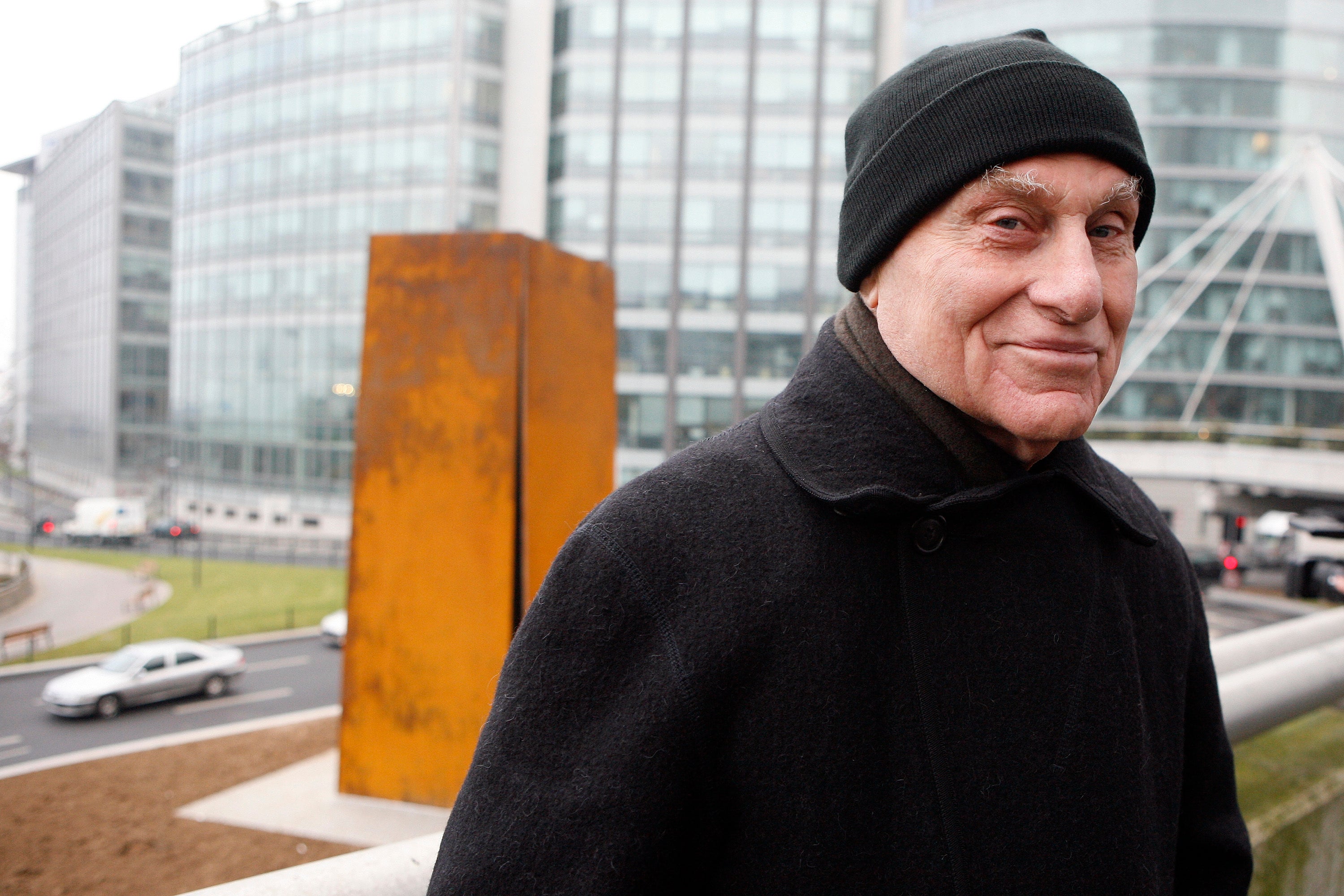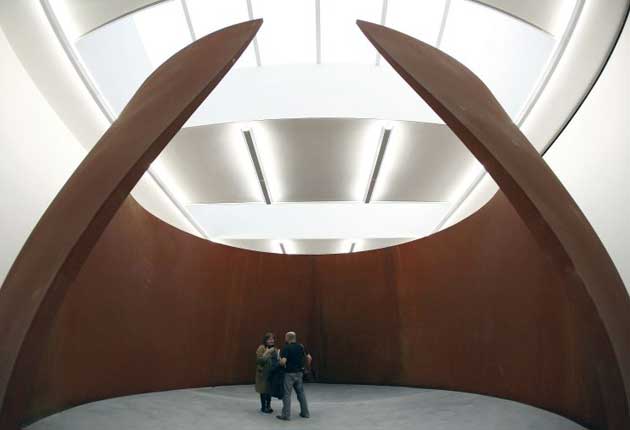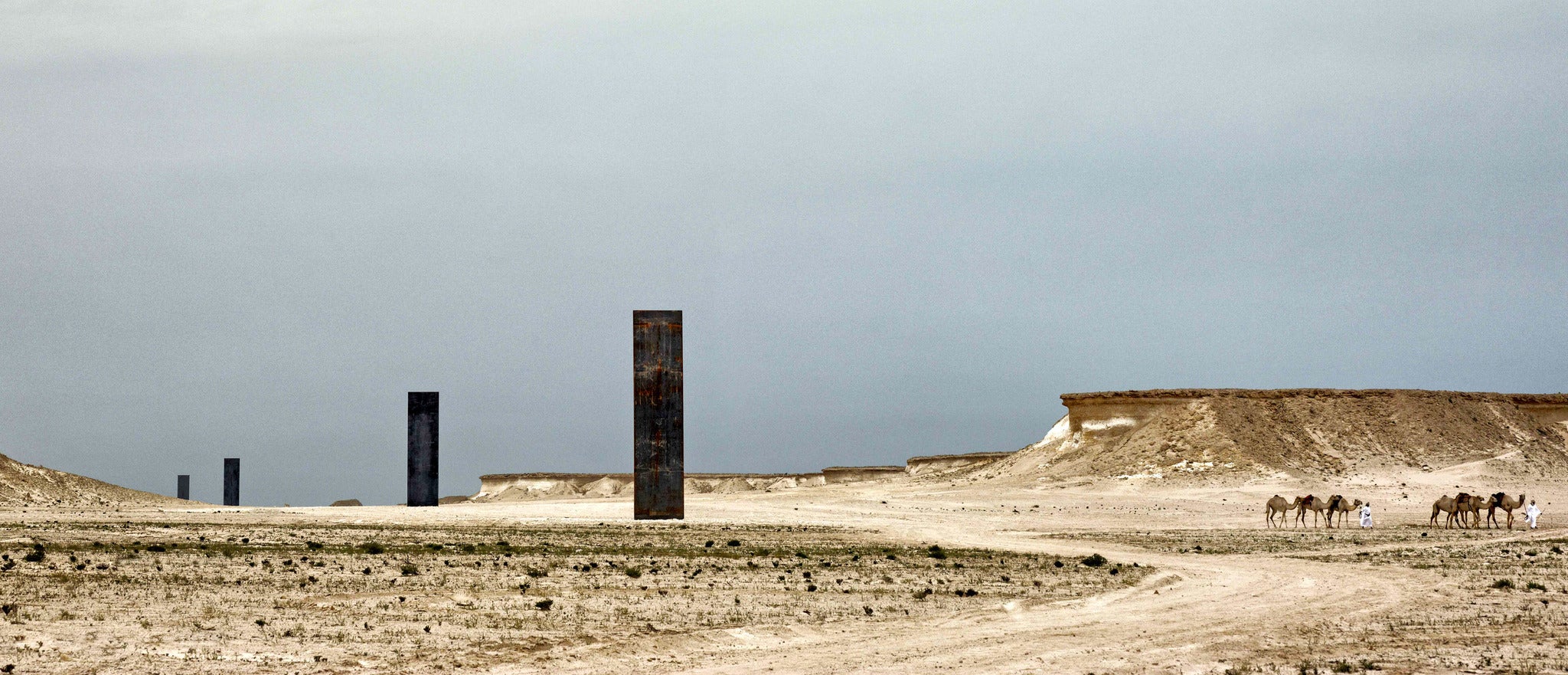Richard Serra, known as ‘world’s greatest sculptor’, dies aged 85
The ‘poet of iron’ passed away at his New York home on Tuesday 26 March
Your support helps us to tell the story
From reproductive rights to climate change to Big Tech, The Independent is on the ground when the story is developing. Whether it's investigating the financials of Elon Musk's pro-Trump PAC or producing our latest documentary, 'The A Word', which shines a light on the American women fighting for reproductive rights, we know how important it is to parse out the facts from the messaging.
At such a critical moment in US history, we need reporters on the ground. Your donation allows us to keep sending journalists to speak to both sides of the story.
The Independent is trusted by Americans across the entire political spectrum. And unlike many other quality news outlets, we choose not to lock Americans out of our reporting and analysis with paywalls. We believe quality journalism should be available to everyone, paid for by those who can afford it.
Your support makes all the difference.Richard Serra, regularly referred to as one of “the world’s greatest sculptors”, has passed away aged 85.
The American artist died of pneumonia at his home in Long Island, New York on Tuesday (26 March). His death was confirmed by his lawyer John Silberman to the New York Times.
Renowned as the “poet of iron”, Serra was famous for turning curving walls of rusting steel and other malleable materials into large-scale pieces of outdoor artwork that are now dotted across the world.
Born in California in 1938, to a Spanish father and Russian mother, he originally set out to become a painter before practising with steel at the age of 17.
Serra worked in steel foundries to help finance his education at the Berkeley and Santa Barbara campuses of the University of California, and studied fine art at Yale, graduating in 1964.
In 1970, he began creating site-specific sculptures in Japan, Canada and across the US, using the location’s topography to influence the viewer’s experience.
“The whole subject-object relationship is reversed. The content is you!” he told The Guardian in 2008. “If you don’t walk into the work and engage with it, there isn’t any content.”

Serra’s work started to gain attention in 1981, when he installed a 120-foot-long (36.5m) and 12-foot-high (3.6m) curving wall of raw steel that split the Federal Plaza in New York City.
The sculpture, called “Tilted Arc”, generated backlash with the artist seeing posters with the phrase “Kill Serra” at the time, and a fierce demand that it should be removed. It was later dismantled after a public hearing, but Serra’s popularity in the New York art scene had been cemented.


In 2014, he installed four 50ft steel towers in the Qatari desert in a project called “East-West/West-East”.
He toldThe Independent at the time: “You just have to present it and see how people react. You can’t spoon-feed...
“Because to try to force a meaning, to tell them what it’s supposed to be seems to me futile... You can point them in a direction, but they are going to have to find an experience that they want to return to.”

Join our commenting forum
Join thought-provoking conversations, follow other Independent readers and see their replies
Comments